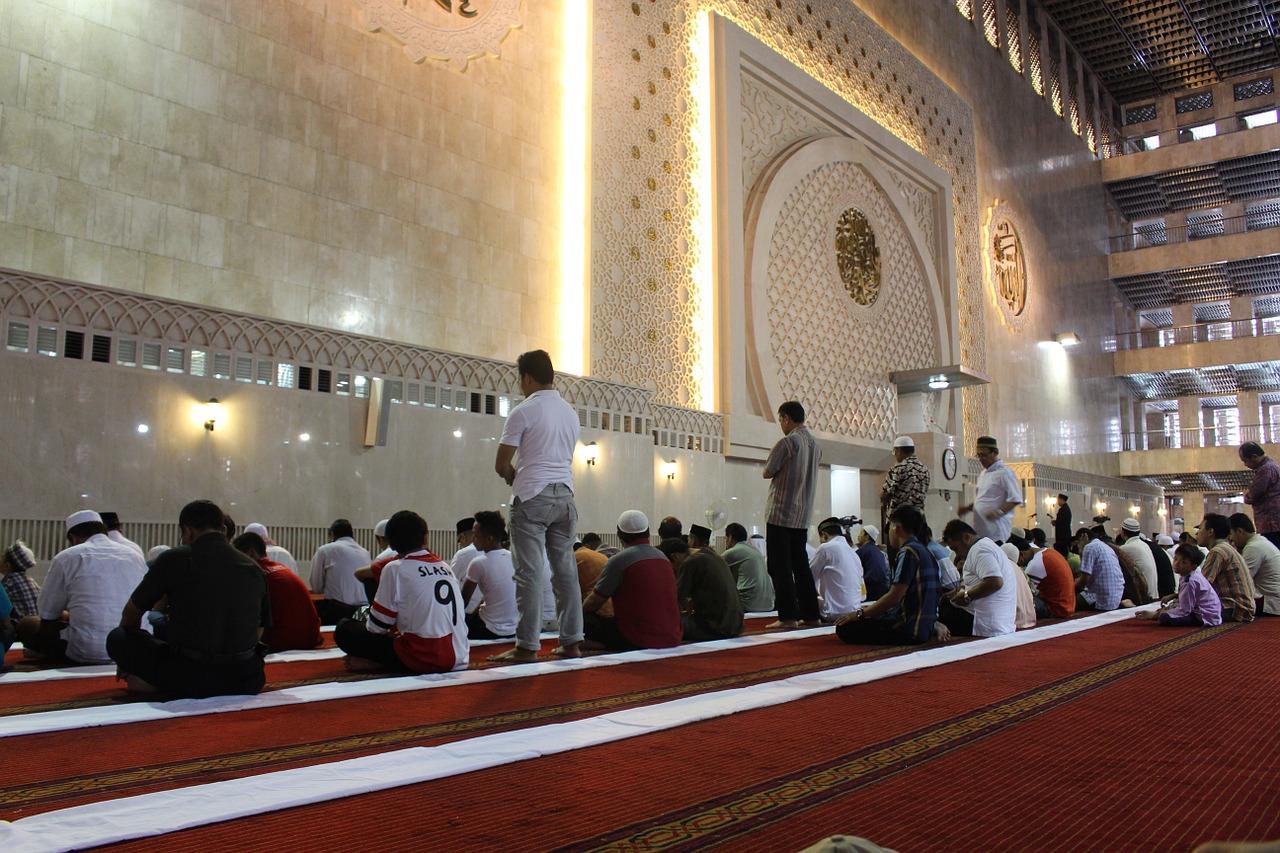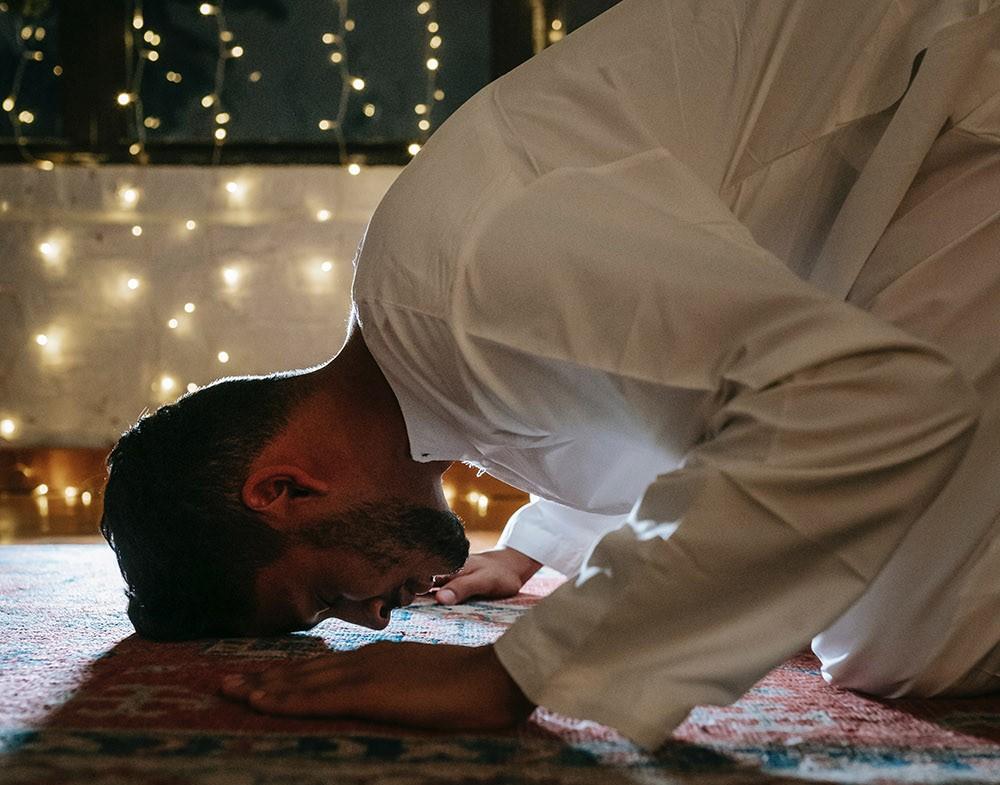This is a summary of the book ‘Upright moral character, A concise guide to attaining dignified Islamic character’ by Sheikh Muhammad Saalih Al-Uthaymeen.
Character has to do with a person’s inner appearance. A person has two appearances;
– An outer appearance, which is the physical shape and form in which Allah created him.
– An inner appearance, which is referred to as character, al khuluq, the inner appearance that a person possesses naturally.
Manners are either innate or attained
Are good manners something that a person naturally possesses or are they something that can be attained? The answer is: just as manners can be innate, they can also be attained.
The Prophet ﷺ said to Ash hajj ibn al Qays: “Verily, you have two characteristics that Allah loves: tolerance and deliberateness”
He replied, “O Messenger of Allah, are they characteristics that I have attained? Or has Allah created me with them?.”
He ﷺ replied: “Rather, Allah has created you with them.”
So he said, “All praise is for Allah, The One who created me with two characteristics beloved to Allah and His messenger.” (Sunan Abi Dawood 5183)
However, good manners that are innate are decisively better than those attained. That is because naturally good manners are a person’s inborn characteristic and something innate, he does not need to force himself to behave well, nor does he have to overcome any difficulty or struggle to manifest them. Rather, it is a bounty from Allah who gives to whomever He pleases. However, anyone who has been deprived of innate good character may try to work and attain it through practicing and adapting to it. The one who struggles, refines himself, and attains good manners, he is certainly to be rewarded for this, due to his personal struggle.
The Prophet ﷺ said, “I have only been sent to complete upright moral character.” (Musnad Ahmad 2/381)
Virtuous manners were sought from the followers of the previous legislations. And it is the perfect legislation that the Prophet came with that brings upright moral character to its completion and good manners to perfection. [Also read: Who Is The Best After The Prophets?]
Good manners are not restricted to interactions with the people. It has its place with one’s interaction with the Creator just as it has its place within one’s interaction with the creation.
Thus, the focus of good manners is:
– One’s interactions with the Creator
– One’s interaction with the creation
Good Manners In One’s Interactions With The Creator
This includes three affairs:
1) Believing what Allah says when it reaches you
2) Implementing and putting His rulings into practice
3) Facing His decreed affairs (qadr) with patience and acceptance
1) Believing what Allah says when it reaches you:
Accepting Allah’s reports and believing them means that one does not doubt them or waver in his affirmation of what Allah says.
“And who is more truthful in speech that Allah.” (Surah Nisa:87)
To truly believe in what Allah says necessitates that one puts his trust in His reports, defends them, and struggles by way of them. And he does not allow the entrance of any doubt or confusion over what Allah and His messenger ﷺ have reported. Take the example of the hadith of the fly; The Messenger of Allah ﷺ said, “If a fly lands in your drink, submerge it under the surface and then remove it, because on one wing is a disease and on the other is cure.” (Sahih Al Bukhari 3320)
This is a report that has come from the Messenger of Allah ﷺ, and he ﷺ never spoke on his own behalf in the affairs of the ghayb (unseen). He would only speak with what Allah revealed. Allah said to him in the Quran,
“Say- ‘I do not claim to possess the treasures of Allah, nor do I know the unseen, nor do I say to you: ‘I am an angel.’ I only follow what has been revealed to me.’” (Surah An’am:50)
This report is something that we must confront with good manners. Good character with regards to this report is to accept it and believe in its meaning. We declare with certainty that whatever the Prophet ﷺ has said in this narration is the truth, no matter who has a problem with it.
2) Implementing Allah’s rulings:
One must not reject any of Allah’s rulings, as this is considered bad manners in one’s interaction with Allah. This is the case whether the ruling in rejected outright, the person refuses to implement it out of pride, or he fails to implement it out of laziness.
Take the example of fasting: Fasting is something that is somewhat difficult upon people, since a person abandons what he is accustomed to. However, the believer has good manners in his interactions with Allah, and he accepts the task. This could be rephrased, rather he accepts this honour, a bounty from Allah.
So, good manners in one’s interactions with Allah include: offering them while the heart is tranquil and relaxed, being content and pleased within the prayer, and eagerly awaiting the time for the next prayer. So let your heart become attached to these prayers, as this is certainly a way to have good manners in your interaction with Allah.
3) Being pleased with the Qadr of Allah:
Accepting what Allah has decreed, and being content and patient with it, is the third way one can have good manners in the interaction with Allah.
Illness, for example, are not things that people favor, as everyone wishes to be healthy. Similarly, poverty is something that people do not favor, as everyone likes to have money.
Good manners in this regard is to be pleased with what Allah has decreed for you and to face it with gratitude, tranquility, knowing that Allah has not decreed it except for a great reason and a favorable outcome that is worthy of praise and gratitude. [Also read: How To Understand Allah’s Will And Decree]
“And convey glad tidings to the patient ones, those who say when faced with a calamity: ‘Verily we belong to Allah, and to Him we shall return.’” (Surah Al Baqarah, 155-156)
Good manners in one’s dealing with the people
The second kind of good manners relates to one’s interactions with the people. Good manners in one’s dealing with the creation has been defined by the scholars as:
1) Refraining from harming others
2) Performing acts of kindness, and
3) Having a pleasant smile on the face
1) Refraining from harming others:
Refraining from harming others, whether the harm is done to their property, physical, health, or honor.
“Verily, your blood, property, and honor is haraam upon you (to violate), like the sanctity of this day of yours, in this months of yours, in this city of yours.” (Sahih Bukhari 1730-1742)
Bad behavior to one’s parents is more serious than bad behavior with anyone else. Bad behavior with one’s close relatives is more serious than bad behavior to the distant ones. Bad behavior with one’s neighbors is more serious than with those who do not live around him.
2) Kind acts of generosity:
The second is to perform acts of generosity and kindness. Generosity is not limited to wealth, as some people may think. When we see a person taking care of the people’s needs, assisting them, introducing them to people they could not have met on their own, disseminating knowledge amongst them, and spending money on them, we describe him with good character, since he is performing acts of kindness.
The Prophet ﷺ said: “Fear Allah wherever you are, follow up[ a bad deed with a good one, it will wipe out, and behave well with the people.” (Jaami’ At Tirmidhi 1987)
From the ways that you mix with the people in a good way is that you excuse them and overlook their acts of oppression against you, since Allah has praised those who excuse the people, describing the people who will go to paradise:
“Those who spend their wealth in times of ease and hardship, those who repress their anger, and those who excuse people, and Allah loves those who do good.” (Surah Al Imran, 134)
Anyone who has any ties with the people will suffer at their hands at some time or another. Allah says:
“Good deeds and bad deeds can not be equal. Respond with what is better, and suddenly, the one who had animosity for you will be like a close friend.” (Surah fussilat, 34)
Not excusing the people in some circumstances:
Are we to understand from what has preceded that excusing someone who has transgressed is praiseworthy in all situations and something we are ordered to? Some people might draw this conclusion from the Quranic verse mentioned. However, let it be known that excusing people is only praiseworthy when the situation calls for it, since holding people accountable is praiseworthy in some in some situations as well. Allah, the exalted, says,
“And whosoever excuses (people), and correct (their affairs), then his reward is with Allah.” (Surah Ash Shura, 40)
Sheikh Al Islam Ibn Taymiyyah said, “Correcting affairs is obligatory, while excusing people is recommended. So when excusing someone prevents correction, then we have given a recommended deed precedence over an obligation. This is something not found in the Islamic legislation.”
3) The pleasant smile
The third kind is to greet people with a pleasant smile, as opposed to frowning at them.
“Do not look down at any act of kindness, even if it just meeting your brother with a pleasant smile on your face.” (Saheeh Muslim: 2626)
Signs of good character
From the signs of a person’s good manners in his dealings with the people is that he is someone easy to be around. His friends and relatives do not find it difficult to deal with him, nor does he make things hard on them. Instead, he brings happiness to their hearts as much as he can, within the confines of Allah’s legislation. This is a limit that must be observed, since there are some people who will not be pleased except with disobedience to Allah, and Allah’s refuge is sought. It is not befitting that we oblige to such people.
However, to bring happiness to the people in you life, your friends and relatives, within the confines of the Islamic legislation is indeed good character. The Prophet ﷺ said: “The best of you are the best to his family, and I am the best to my family.” (Ibn Majah 1977)
Sadly enough, many people have good manners when dealing with the people, however, they do not behave well with their families at all. This is a huge mistake and a backwards understanding. How can a person behave well with distant relatives while he has poor manners with those closer to him!?
Anger Management
A man came to the Prophet ﷺ and asked: “O Messenger of Allah! Give me advice!” So he ﷺ said: “Do not get angry.”The man repeated his request a number of times. Each time, the reply was the same.
The Prophet of Allah ﷺ said: “The strong man is not the one who can physically overtake others. Rather, the strong man is the one who can control himself when he is angry.” (Sahih bukhari, 6116)
Maintaining control of oneself during a time of anger is a kind of upright moral character. If you become angry, then do not unleash your anger. Instead seek refuge in Allah from the accursed shaytan. If you are standing, then sit down, if your are sitting then lay down on your side. If the anger still increases then go and perform wudhu until it recedes.
How to attain good character
Firstly, a person can attain good character by reading the Book of Allah and the sunnah of His messenger.
Secondly, one can attain good character by accompanying those known for good character. The Prophet ﷺ alluded to this when he said:
“The example of a righteous companion (friend) in comparison to a bad companion is like a perfume salesman and a blacksmith. The perfume salesman will either give you (a fragrance), sell you some, or at least you will be affected by his pleasant aroma. The example of a bad companion is that of a blacksmith who will either singe your clothes or disturb you with his filthy odor.” (Sahih Bukhari 5534). Companionship is a kind of school that they learn and gain good character from.
Thirdly, one can attain good character by thinking about the effects of his bad character, since a person of bad character is detested, abandoned, and only mentioned in a negative way.
We have the finest role model in the Messenger of Allah ﷺ,:
“And verily, you are upon a high standard of moral character.” (Surah Al Qalam, 4)
All of the events that took place in the lifetime of the Messenger ﷺ prove his fine character.
Which is better: Good manners or religious obligations?
The Prophet ﷺ said, “Good manners gets the best in the this life and the hereafter.” (Mu’jam as Saghir 3141) There is no doubt that the complete observance of the religion includes completion of one’s character, as has been authentically reported from the prophet, “The most complete believers are those with the finest of character.” (Sunan Abi Dawood 4644)
Thus anyone who has deficiencies in his character has deficiencies in his application of the religion itself, since the completeness of a person’s religion is known by completeness of his manners. When a person who is strong in his acts of worship is granted success in attaining perfect character, his situation is indeed better. [Also read: Which Acts Of Worship Are Best In Islam?]
Limited free articles. Subscribe for full access.








 Dr. Bilal Philips
Dr. Bilal Philips